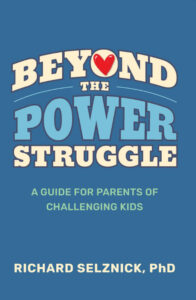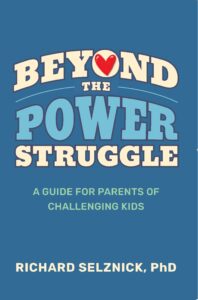 Synonyms for “nonchalance:” apathy, complacence, indifference, unconcern, torpor
Synonyms for “nonchalance:” apathy, complacence, indifference, unconcern, torpor
Antonyms for “nonchalance:” concerned, interested, motivated
A parent came to talk to me about her 14-year-old-son, Brett. Previously “diagnosed” with ADHD of the inattentive variety, various stimulant medications have been tried with him without much benefit.
“Look,” the mom said, “I don’t really know if he’s ADD. The doctor spent about 15 minutes with us after we completed this rating scale. I do know he’s nonchalant. It’s like he’s just indifferent to everything, especially anything school-related and it’s driving me up a wall.”
(“Nonchalant.” Now, that’s a word I don’t hear very often, certainly not used in clinical terms or descriptions.)
Upon meeting Brett, I knew exactly what the mom was saying. It was a very long hour trying to find out what his point of view was on the topic. It’s not easy to talk to someone who shows indifference and apathy. Essentially, the session involved Brett having little to say with a fair amount of shrugging when asked various questions.
“All he cares about are his game systems and phone,” his mom nearly shouted in the session. (All the while Brett sat their blasé’ and nonchalant.)
The mom’s frustration brought to mind a famous short story I had read many years ago by Herman Melville, called “Bartleby, the Scrivener.” (“Scrivener,” talk about a dated word.)
As I recall, Bartleby was the 19th century version of a paralegal working in a law office. Whenever he was asked to do something by his office superior, Bartleby had a standard response – “I would prefer not to.” Bartley basically did nothing and just stared out the window ignoring his boss with nonchalant indifference.
This, “I’d prefer not to,” position gave Bartleby a lot of power and resulted in making Bartleby’s boss bonkers.
Another example told to me was about 11-year-old Jackson who was asked to help his mom to pull weeds in preparation for some landscaping.
Since he was engaged with playing Grand Theft Auto, he was not interested in helping, offering his own version of, “No, I’d prefer not to.”
With his stance, the mom’s anger thermometer skyrocketed while Jackson’s power increased.
Psychologists and other behavioral types will have all kinds of systems to try and get the motivation going in the right direction, but it’s a tough battle.
If you have a Bartleby, my best advice is to try and side-step the control battles that inevitably ensue, as challenging as this may be may be.
Recognize that ultimately it’s your child’s choice whether to engage with the requested task or not. You might want to have an honest sit down and speak in very direct tones delivering a clear message.
“Look, there’s no give and take here. It’s all a one-way street. Things you take for granted such as your phone and game system are paid for by us. They are privileges, not rights like food and shelter. Ultimately, it’s your choice. However, unless things change we’re putting your game system and phone in our safe until you’ve earned the privileges back. If you don’t want it to go that way, then choose differently. Get in the game. Either way is fine.”
Takeaway Point
Go buy a safe if you don’t have one.
They come in handy when you need them.
Feel free to make comment below.
To receive future blog posts, register your email: https://shutdownlearner.com.
To Contact Dr. Richard Selznick for advice, consultation or other information, email: shutdownlearner1@gmail.com.

 Copyright, Richard Selznick, Ph.D. 2023, www.shutdownlearner.com.
Copyright, Richard Selznick, Ph.D. 2023, www.shutdownlearner.com.

 (***This blog is a revision of an earlier post.)
(***This blog is a revision of an earlier post.) An issue often overlooked with children diagnosed as ADHD is a frequently occurring underlying variable of social judgment and difficulty with “reading” cause and effect. Difficulty with reading cause and effect impacts both social and academic functioning, such as understanding inferences with reading comprehension.
An issue often overlooked with children diagnosed as ADHD is a frequently occurring underlying variable of social judgment and difficulty with “reading” cause and effect. Difficulty with reading cause and effect impacts both social and academic functioning, such as understanding inferences with reading comprehension.